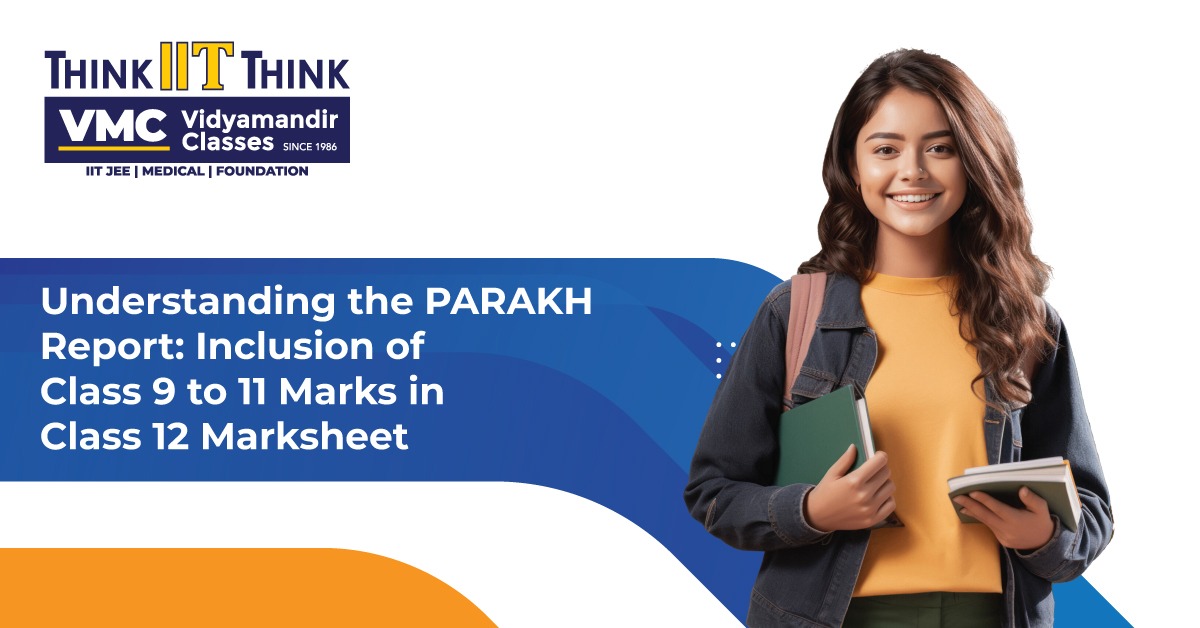Understanding the PARAKH Report: Inclusion of Class 9 to 11 Marks in Class 12 Marksheet
 Posted On
Posted On
335 total views, 2 views today
A New Approach to Student Evaluation
PARAKH, an acronym for Performance Assessment, Review, and Analysis of Knowledge for Holistic Development, functions as a standard-setting organization within the National Council of Educational Research and Training (NCERT) in India. It seeks to transform the approach to student evaluations. According to a report by the Indian Express, PARAKH has proposed a new framework that includes marks from Classes 9, 10, and 11 in the final Class 12 marksheet. This approach is designed to create a more comprehensive and accurate reflection of a student’s academic journey.
Proposed Changes: Integrating Holistic Assessment
The key recommendation from PARAKH is the inclusion of academic performance data from Classes 9, 10, and 11 into the final Class 12 report card. This proposal aims to ensure that a student’s entire high school journey is taken into account when determining their final grades. The suggested weightage for each class is as follows:
- Class 9 contributes 15% to the final marks
- Class 10: 20% of the final marks
- Class 11 contributes 25% to the overall final marks
- Class 12: 40% of the final marks
The new evaluation method emphasizes both formative and summative assessments. Formative assessments will include continuous classroom assessments, holistic progress cards, group discussions, and project work, while summative assessments will consist of term-end examinations.
Class-wise Assessment Structure
To implement this comprehensive approach, the PARAKH report recommends the following distribution between formative and summative assessments for each class:
- For Class 9, assessments are divided into 70% formative and 30% summative evaluations
- Class 10: 50% formative and 50% summative assessments
- Class 11: 40% formative and 60% summative assessments
- For Class 12, assessments will comprise 30% formative evaluation and 70% summative evaluation
This structure aims to shift the focus from solely relying on year-end exams to a more balanced and ongoing evaluation system, giving students multiple opportunities to demonstrate their abilities.
Impact on Entrance Exams: CUET and NEET
The PARAKH report also raises important questions about the relevance of national entrance exams such as the Common University Entrance Test (CUET) and the National Eligibility cum Entrance Test (NEET). Indrani Bhaduri, CEO and head of PARAKH, explained that standardizing educational boards across India could potentially eliminate the need for such exams. If boards can achieve comparability and reliability, it might simplify student mobility and make these entrance exams redundant.
By doing so, students’ results would be more indicative of their actual competencies, aligning with the broader objectives of educational reform as envisioned by the National Education Policy (NEP) 2020.
PARAKH’s Role and Objectives
PARAKH was established as an independent unit within NCERT following the guidelines set out in the NEP 2020. Officially launched through Notification No. 1-4/2012-EC/101-164 on February 8, 2023, the center was created to set norms, standards, and guidelines for student assessments across India. PARAKH focuses on four critical areas:
- Capacity Development in Competency-Based Assessment: Enhancing the skills of educators to assess students based on competencies rather than rote learning.
- Large-Scale Achievement Surveys: Conducting extensive surveys to evaluate the performance of education systems at various levels.
- Equivalence of School Boards: Ensuring consistency and comparability in the standards of education provided by different boards across the country.
- Holistic Progress Cards: Developing comprehensive progress cards that capture the overall development of students across various stages of education.
Innovations in Student Evaluation
PARAKH has made a significant impact with the creation of the Holistic Progress Card (HPC), which shifts away from conventional assessment methods. Instead of focusing solely on academic achievement, the HPC considers various aspects of a student’s development, including emotional, social, and cognitive skills. This approach aims to provide a more rounded evaluation of students, recognizing that education is not just about academics but also about nurturing well-rounded individuals.
Conclusion: The Road Ahead
The proposals outlined in the PARAKH report represent a significant shift in India’s educational assessment landscape. By integrating performance from earlier classes and focusing on holistic development, the report aims to create a more equitable and comprehensive system that better prepares students for future challenges.
The potential elimination of entrance exams like CUET and NEET could simplify the transition from school to higher education, provided that the boards can achieve the required standardization. As these changes are considered and potentially implemented, they hold the promise of transforming the educational experience for millions of students across India, making it more reflective of their true capabilities and aspirations.
The journey towards implementing these recommendations will require collaboration between educators, policymakers, and stakeholders to ensure that the new evaluation system is effective, equitable, and beneficial for all students.




